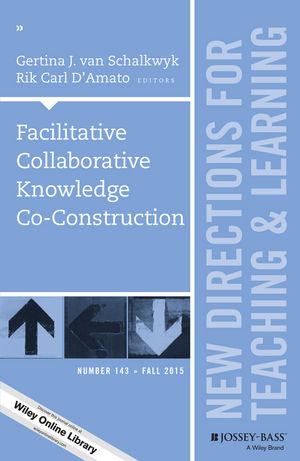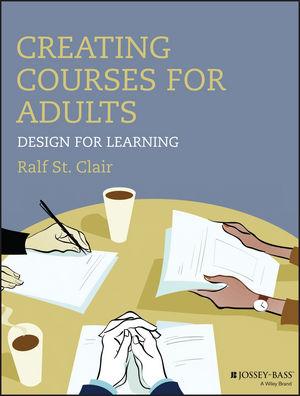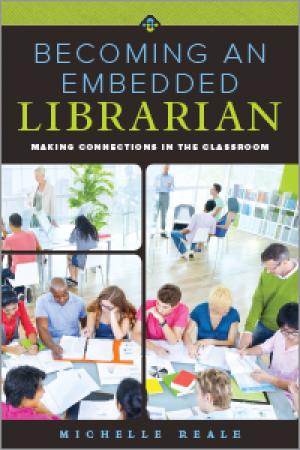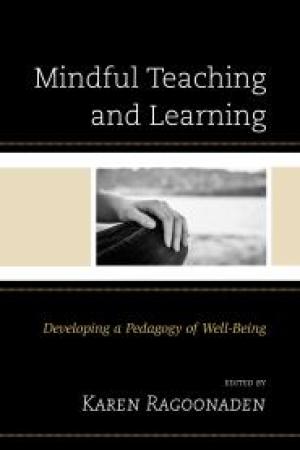Resources
One page Teaching Tactic: Inspiring students through informal encounters with the wide diversity of actual living biblical scholars.
One page Teaching Tactic: Students work alone and in groups to identify effective research questions for their capstone essay.
One page Teaching Tactic: A final paper assignment that knits together the major themes of the course by drawing on activities from the first day of class and peer interviews students have conducted during the semester.
A renowned child psychoanalyst, Erik H. Erikson (1902–1994) is perhaps best known for his work on developmental theory (Childhood and Society, 1950) and his studies of the lives of Martin Luther (Young Man Luther, 1958) and Gandhi (Gandhi's Truth, 1969). Twice he found himself intensely engaged in the role of teacher – once as a young artist who had been called by a friend to help in the progressive school formed for the children of Sigmund and Anna Freud's patients in Vienna (1927–1932), and years later (1960–1970) as a tenured professor at Harvard. This essay describes Erickson's teaching experience in both settings and suggests some of the reasons he was honored by Harvard in 1980 as a “humane teacher.” Implications from Erikson's educational practice are drawn that demonstrate how Erikson moved beyond the rote memorization and authoritarian educational practice he experienced as a youth. The essay suggests Erikson's teaching stance at Harvard fits the author's theological tradition's use of the term “teaching elder.”
The undergraduate study of religion is predominantly undertaken by non-majors who are meeting a general education requirement. This means that, while curricular discussions make important distinctions between the work of lower- and upper-division courses, many religion and theology faculty are teaching hybrid courses that we call “introductory upper-level courses.” These play an introductory role in general education while also serving the study of religion in a more advanced way. Attention to how these courses fit into multiple curricular goals will be important for the scholarship of teaching and learning in religious studies and theology. This essay draws on scholarship about introductory teaching and a survey of faculty about introductory upper-level courses to argue that the content of such courses should be understood as serving the study of religion at an advanced level, the context should be understood as introducing general education goals, and the goals for intellectual growth must strike a challenging balance between the two.
Transformative Learning Theory and pedagogies leverage disruptive experiences as catalysts for learning and teaching. By facilitating processes of critical analysis and reflection that challenge assumptions, transformative learning reframes what counts as knowledge and the sources and processes for gaining and producing it. Students develop a broader range of perspectives on and entry points for learning and behavior change engaging cognition, embodiment, aesthetics, emotions, and ethics (see Mezirow 1991 and Figures 1 and 2). The open-inquiry, multi-modal nature of transformative learning defies most traditional assessment strategies. This article demonstrates that grounded theory offers the rigorous qualitative analysis needed to document and track transformative learning outcomes in practice. By applying a grounded theory approach to data from over eighty student portfolios across several iterations of a Religion and Ecology course at Emory University, this article demonstrates a successful and replicable assessment of transformative learning pedagogies.

Click Here for Book Review Abstract: Collaborative teaching and learning has been a focus of research recently, yet it can sometimes be a challenge for multicultural students in an educational setting. This second volume of a two-volume edition helps lecturers, educators, and teachers create collaborative teaching and learning experiences with multicultural adult learners in higher education. The authors of this volume provide: - outlines of some of the positive relationships that can be developed among students and educators when the process of gaining knowledge is seen as a co-constructed process, - approaches to relational intelligence and collaborative learning, - research from neuropsychology and practical applications to teaching, and - characterizations of emotional intelligence and sociocognitive skills needed in collaborative learning environments. Though focused on Asian students and their experiences, this volume includes information for all students and educators who are engaged in the collaborative search for knowledge. This is the 143rd volume of this Jossey-Bass higher education series. It offers a comprehensive range of ideas and techniques for improving college teaching based on the experience of seasoned instructors and the latest findings of educational and psychological researchers. (From the Publisher)

Click Here for Book Review Abstract: Become an effective adult educator by approaching teaching systematically As the author describes at the beginning of Creating Courses for Adults, "The big idea of this book is that education for adults has to be designed." Whether in basic skills training, English language classes, professional development workshops, personal interest courses, or formal degree programs, good teaching tends to conceal all the planning and decisions which had to be made in order to present participants with a seamless and coherent process for learning. The author posits that nobody is a completely intuitive teacher and that everybody has to make a series of choices as they put courses together. The decisions they make are important and far-reaching, and deserve to be considered carefully. Starting with the three core factors which must be taken into account when creating courses, Creating Courses for Adults walks readers through a manageable process for addressing the key decisions which must be made in order to design effective learning. - Instructor factors are what the teacher brings to the teaching and learning process, such as experience and preferences. - Learner factors are the influences that students bring with them, including their past experiences and expectations for the class. - Context factors include the educational setting, whether in-person or online, as well as the subject matter. Readers of Creating Courses for Adults will learn a systematic approach to lesson and course design based on research into the ways adults learn and the best ways to reach them, along with pointers and tips for teaching adults in any setting. (From the Publisher)

Click Here for Book Review Abstract: Embedded librarianship is “not one size fits all,” yet many books on the subject treat it in a cold, objective manner that doesn’t adequately communicate how becoming an embedded librarian actually works in the real world. Here, Reale shares her own university classroom experiences to offer a step-by-step primer for those contemplating the practice. Demystifying what can sometimes feel intimidating to academic librarians, this down to earth resource - defines what embedded librarianship is, and isn’t; - explains why being in the classroom is so important, and how it creates communities of learning; - hows how to clarify the role of the librarian in a classroom by being a “facilitator of process”; - offers strategies for relationship building, setting goals, and honing a teaching style; and - discusses embedded librarianship and branding. Readers will feel confident applying the lessons learned from Reale’s first-hand account to their own experiences both in and out of the classroom. (From the Publisher)

Click Here for Book Review Abstract: Mindful Teaching and Learning: Developing a Pedagogy of Well-Being features a community of scholar-practitioners from across disciplines, methodologies, and ideological perspectives exploring and examining contexts that support mindful teaching, mindful learning, and a pedagogy of well-being. Collectively, these chapters document and analyze the opportunities and challenges within pedagogical sites and discuss how the disposition of mindfulness can be nurtured and sustained in educational practice and praxis. Bolstered by the positive evidence-based standards emanating from clinical settings, mindfulness based training has spread into a variety of other fields like psychology, healthcare, and more recently, education. Within pedagogical environments, an emergent secular conception of mindfulness, under the auspices of educational psychologists like Langer (1987; 1997), Goleman, (2008), Lantieri (2008), Roeser, Skinner, Beers, and Jennings, (2012), and Schonert-Reichl and Lawlor (2010), is making headway. Consequently, Mindfulness Training (MT) resources have been applied to educational contexts in order to maximize the academic, emotional, physical, and psychological benefits provided by this mind-body approach to well-being. Acknowledging the increasing evidence base for the efficacy of mindfulness interventions as well as the elevated stress levels reported by many educators and their students, this book discusses how mindful practices, praxis, and research can inform and support pedagogy, curriculum, and leadership initiatives in higher education in the twenty-first century. Alongside the multitude of recent studies in the area of Mindfulness, contributors discuss their own experiences using Self-study, Contemplative pedagogy, Living Educational Theory, and Curriculum Inquiry. The content of this book examines ways in which to develop habits of mind and courses of action, as well as a curriculum of study that can support educators as they cultivate competencies for thriving and coping with the modern demands of being a teacher. (From the Publisher)
Wabash Center Staff Contact
Sarah Farmer, Ph.D
Associate Director
Wabash Center
farmers@wabash.edu